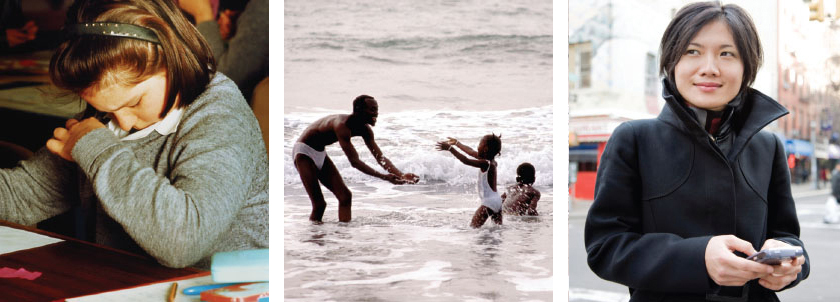2.2 THE SOURCES OF SELF
Printed Page 45
THE SOURCES OF SELF
Outside forces influence your view of self
For most of us, critical self-reflection isn’t a new activity. After all, we spend much of our daily lives looking inward, so we feel that we know our selves. But imagine for a moment that you don’t. You wake up in your bed, and although you recognize your surroundings, you have no memory of self. Nothing. How will you find out who you are?
You might first examine your own body. Knowing whether you are male or female would immediately give you a wealth of useful knowledge about your self, such as which clothes you should wear and how you should talk and act. Second, you would likely venture downstairs to talk with family members, gathering as much information from them as you could. You would also watch how they respond to you. Do they seem intimate and caring toward you? Distant and aloof? Unpredictable and uncertain? Last, you would probably turn on the computer and surf the Internet, watch TV, or even take a walk into town, looking for clues about how people communicate with each other in public, how they dress, and how they behave. From these observations, you might begin to form ideas about where you fit in this culture.
Of course, at the end of the day, you still would have huge holes in your self-knowledge. Biologists and psychologists agree that roughly half of what makes us who we are is determined by our biological heritage (Rothbart, Ahadi, & Evans, 2000). But this doesn’t mean that our self-awareness, self-concept, and self-esteem are 50 percent identical to those of our parents and other ancestors. Instead, our selves are shaped by the powerful outside forces of gender, family, and culture.
